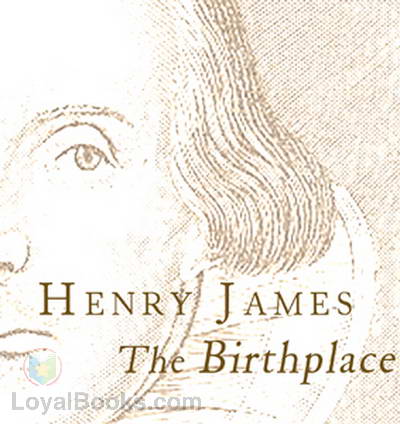
By: Henry James
The Birthplace by Henry James is a captivating and thought-provoking novel that explores themes of heritage, family, and identity. The story follows a young man named Hyacinth Robinson who grapples with conflicting loyalties to his revolutionary father and his wealthy, aristocratic benefactor. As he navigates the complexities of his own background and upbringing, Hyacinth must confront the prejudices and expectations of society while striving to forge his own path.
James’ writing is rich and evocative, drawing readers into the intricacies of Hyacinth’s internal struggle and the world around him. The novel is filled with vividly drawn characters and lush descriptions of the bustling city of London, providing a vivid backdrop for the emotional and philosophical dilemmas at the heart of the story.
Overall, The Birthplace is a compelling and sophisticated work that offers a nuanced exploration of class, culture, and personal responsibility. Henry James’ masterful prose and keen insight make this novel a timeless and engrossing read that will linger in the minds of readers long after they have turned the final page. Book Description:
Neither the name of Shakespeare nor that of Stratford appears directly in this short piece by James, and yet both are absolutely central to his plot. The story has to do with Mr. and Mrs. Gedge, tempted away from a dreary northern town library, which he runs, to become the wardens – caretakers and tour guides – of the house where the greatest writer of the English language was born, and in which he grew up.
Or did he? There is, after all, a paucity of facts about His life (in James's text, that pronoun is always capitalized, as befits a deity) and only the slenderest of historical evidence about the existence of such a man. No matter; what is important is the myth of his life, and the myth needs to be cared for and fostered so that crowds upon crowds of tourists may come, and, with a proper reverence, worship at His Birthplace.
And yet it is only myth, and the more he thinks of it, the unhappier poor honest Gedge becomes (to Mrs. Gedge, however, a job is a job, and too much speculation on reality might perhaps lead to dismissal). James himself was high skeptical about the Shakespeare question (who actually did write all those plays?) But that's not the point here. Rather the story has to do with the making of a shrine, the selling of its wares (commodification, to use a fancy word) and the priesthood needed to protect the myths necessary to its existence.
What should the skeptical Gedge do about it? What, if anything, will he do? (Introduction by Nicholas Clifford)
|
